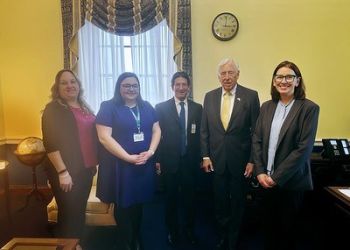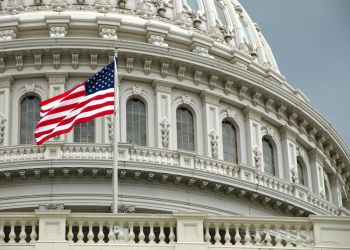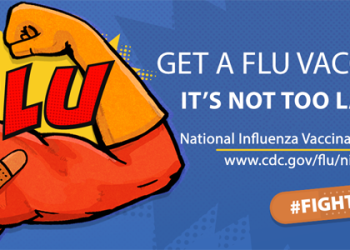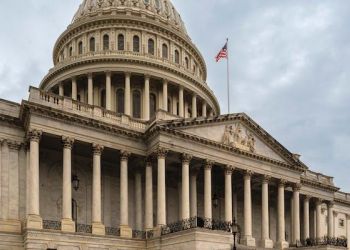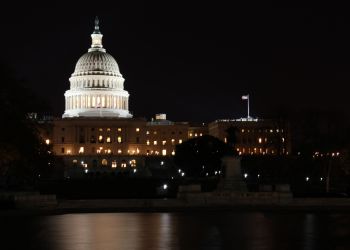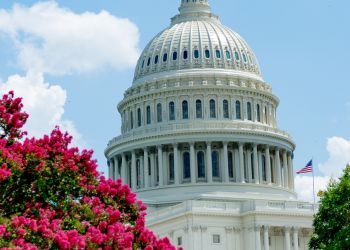Local health departments highlight increased investments, communications, and coordination needed to tackle COVID-19 pandemic and beyond
Washington, DC, November 16, 2020 — Today, the National Association of County and City Health Officials (NACCHO), on behalf of the country’s nearly 3,000 local health departments, released a transition document providing recommendation to the Biden-Harris Administration and the 117th Congress. The document highlights the key role local health departments play in our nation’s health and safety and lays out specific efforts to help the U.S. emerge safely from the COVID-19 pandemic and strengthen the public health system that protects the public in small towns, big cities, and all the communities in between.
Public health in the U.S and globally has been in an unprecedented spotlight in 2020. The COVID-19 pandemic has shown how the public health system is a critical component to all facets of daily life. However, it must be better supported, now and into the future. This is particularly important for local health departments, who have served on the front lines of this response since well before the first cases were diagnosed in the U.S. and will continue to be until the very last days of the pandemic and beyond.
The full document can be found here. Key recommendations include:
Support Local Health Departments on the Frontlines of the COVID-19 Response
• Appropriate substantial additional investments to the governmental public health system at all levels (federal, state, local, tribal and territorial), as well as at least $3 billion in funding designated specifically for local health departments.
• Publicly track any disbursement of federal COVID-19 response funds down to the local health department level to identify best practices as well as better understand the challenges of getting money to the front lines of the response.
• Ensure that federal grants and funding announcements include local health department expertise and perspective in state-level grantee policy and budget planning.
Strengthen the Governmental Public Health Partnership to Harness Expertise from the Local Level in National Planning
• Include the local health department perspective in national planning, including on the Biden-Harris Transition Team and Advisory Board, to ensure that our national response to COVID-19 is both informed by current practitioners and workable for implementation at the community level and considers the varying geography, rurality, and experiences of local public health practice.
• Include local health departments in planning discussions to ensure federal and state policies and plans can be successful at the local level.
• Inform and consult with local health officials on federal COVID-19 response actions occurring within their jurisdictional borders.
Invest in COVID-19 Vaccine Deployment and Infrastructure
• Appropriate at least $8.4 billion in funding for COVID-19 vaccine distribution, with a portion of the vaccine funding designated specifically for local health departments to plan, prepare for, distribute, and track COVID-19 vaccinations.
• Include local health departments in planning discussions to ensure federal and state policies and plans equip local health departments to successfully foster equitable COVID-19 vaccine uptake.
• Engage with public health and health care leaders, including local health departments, to ensure clear, consistent messages about vaccine safety and efficacy and combat misinformation.
Restore Support and Trust in Public Health, where across the country, public health officials and staff have been physically threatened and politically scapegoated during the COVID-19 response. More than 90 local and state health officials have left their jobs or been fired since April.
• Ensure that federal public health guidance is clear, consistent, and science-based in order to slow the spread of COVID-19, and allow reopening of communities based on scientific measures, not political considerations.
• Support and protect the statutory authority of local health departments and local health officials to take actions to protect the public.
• Ensure local and state health officials are afforded the same protections as federal employees when carrying out their official duties as part of the COVID-19 response.
• Clarify that federal funds may be used to provide security and protect the safety of local public health officials and staff should those steps be necessary.
Provide Long-term Investment to Protect the Public and Strengthen Health Equity.
We need investment in the long-term capacity of the public health system to address future needs, including health challenges that are going unmet because of the need to respond to COVID-19, including:
Public Health Infrastructure
o Invest $4.5 billion in additional annual mandatory funding for core governmental public health infrastructure, with designated funding to adequately support the local health department level, to support essential activities such as disease surveillance, interoperable data exchange, epidemiology, laboratory capacity, all-hazards preparedness and response; policy development and support; communications; community partnership development; and organizational competencies.
o Break the cycle of boom-and-bust funding for governmental public health, where investments during a crisis are quickly eroded when the crisis fades.
Workforce
o Enact and fund a public health loan repayment program, modelled after the National Health Service Corps, to help recruit and retain top talent to local and state governmental public health practice, whose workforce capacity is down 21% in the last decade.
o Increase investment in the Medical Reserve Corps, which facilitates community volunteerism with local health departments in times of crisis.
Health in All Policies
o Adopt and support a Health in All Policies approach at all levels of government to ensure that health considerations are included in policy and program development, as well as budget allocation decisions, outside of the traditional health sector and to foster more effective cross-sectoral collaborations to improve population health. This is necessary as ultimately, many of the decisions that impact community-level health and resilience are determined by policies developed outside of the public health sector.
Data Modernization
o Support funding for CDC’s Public Health Data Modernization Initiative to be fully implemented, investing in not only federal, but also both state and local infrastructure for exchanging data in an interoperable manner. Infrastructure includes upgrading systems and ensuring there is a skilled workforce to navigate their agencies through the acquisition and modifications of such systems.
o Incentivize the transmission of data from health care to public health via electronic case reports, and support local health departments to implement necessary policies, procedures, training, and infrastructure (e.g., broadband access.)
Maintain and Grow COVID-19 Innovations and Investments
• Build upon and continue COVID-19-related innovations in public health practice that improve efficiency and expand service delivery, including video directly observed therapy for tuberculosis; technology-based sexually transmitted infection and HIV partner services; self-testing; telehealth and virtual check-ins for programs like the Special Supplemental Nutrition Program for Women, Infants, and Children (WIC); and virtual engagement with communities.
• Leverage and build upon COVID-19 investments in the public health system, like enhanced data systems, to improve future public health practice and service delivery after the pandemic is over.
###
About NACCHO
The National Association of County and City Health Officials (NACCHO) represents the nation’s nearly 3,000 local governmental health departments. These city, county, metropolitan, district, and tribal departments work every day to protect and promote health and well-being for all people in their communities. For more information about NACCHO, please visit www.naccho.org.



